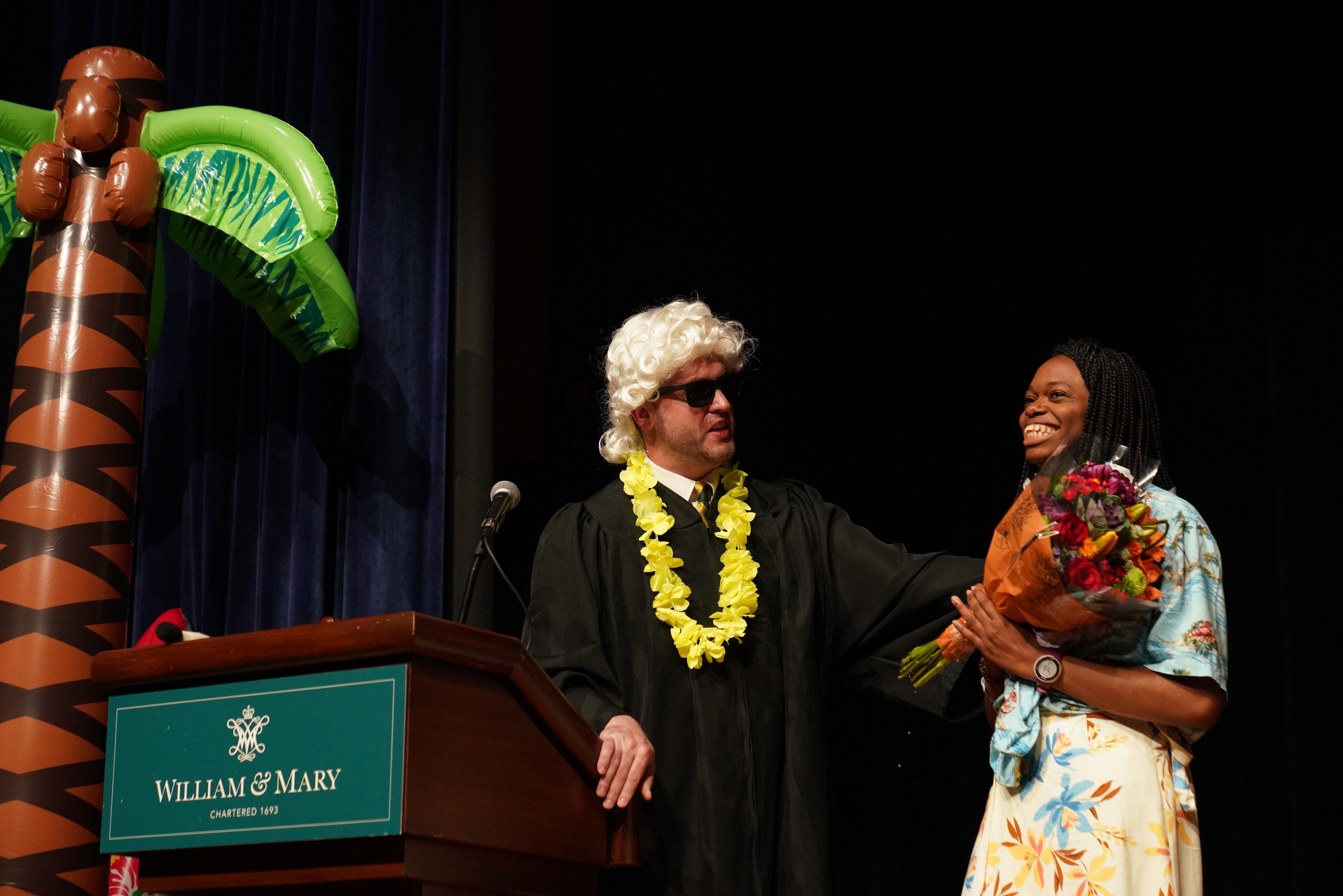The return of the Raft Debate
{{youtube:large:center|b1u5aOdD1To}}
A beloved William & Mary tradition dating back to the 1960s, the Raft Debate, made its highly anticipated return to Commonwealth Auditorium on Monday, Oct. 28. This lively event featured three professors, each representing a different academic discipline: Natural and Computational Sciences: Joshua Erlich, Professor of Physics; Humanities: Jessica Paga, Associate Professor of Classical Studies; Social Sciences: Jennifer Stevens, Associate Professor of Psychological Sciences.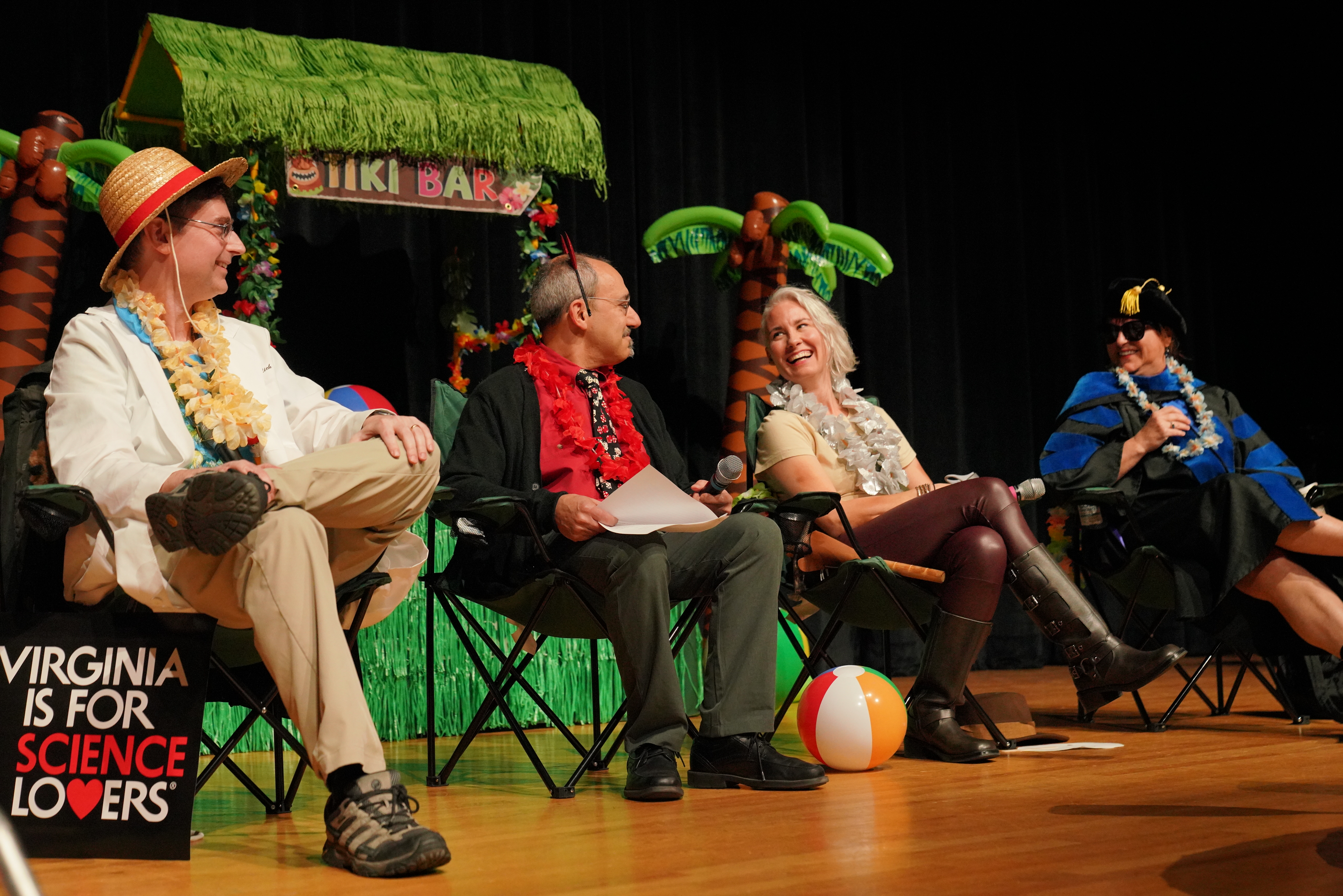
Hosted by Trey Mayo, Assistant Dean for Graduate Studies, Arts & Sciences, the competition determines what discipline will save humanity, ultimately earning its professor a life raft to use to return to civilization. It can be best described as a “delicate balance of comedy and lecture,” said Mayo.
“I am delighted that we were able to bring back the Raft Debate and so grateful to everyone who made it possible. The excitement in the room was infectious! I realized that our students are hungry for more events with this combination of comedy and thoughtfulness. It’s always fun to see your faculty being goofy,” said Suzanne Raitt, Dean of the Faculty of Arts & Sciences and Chancellor Professor of English.
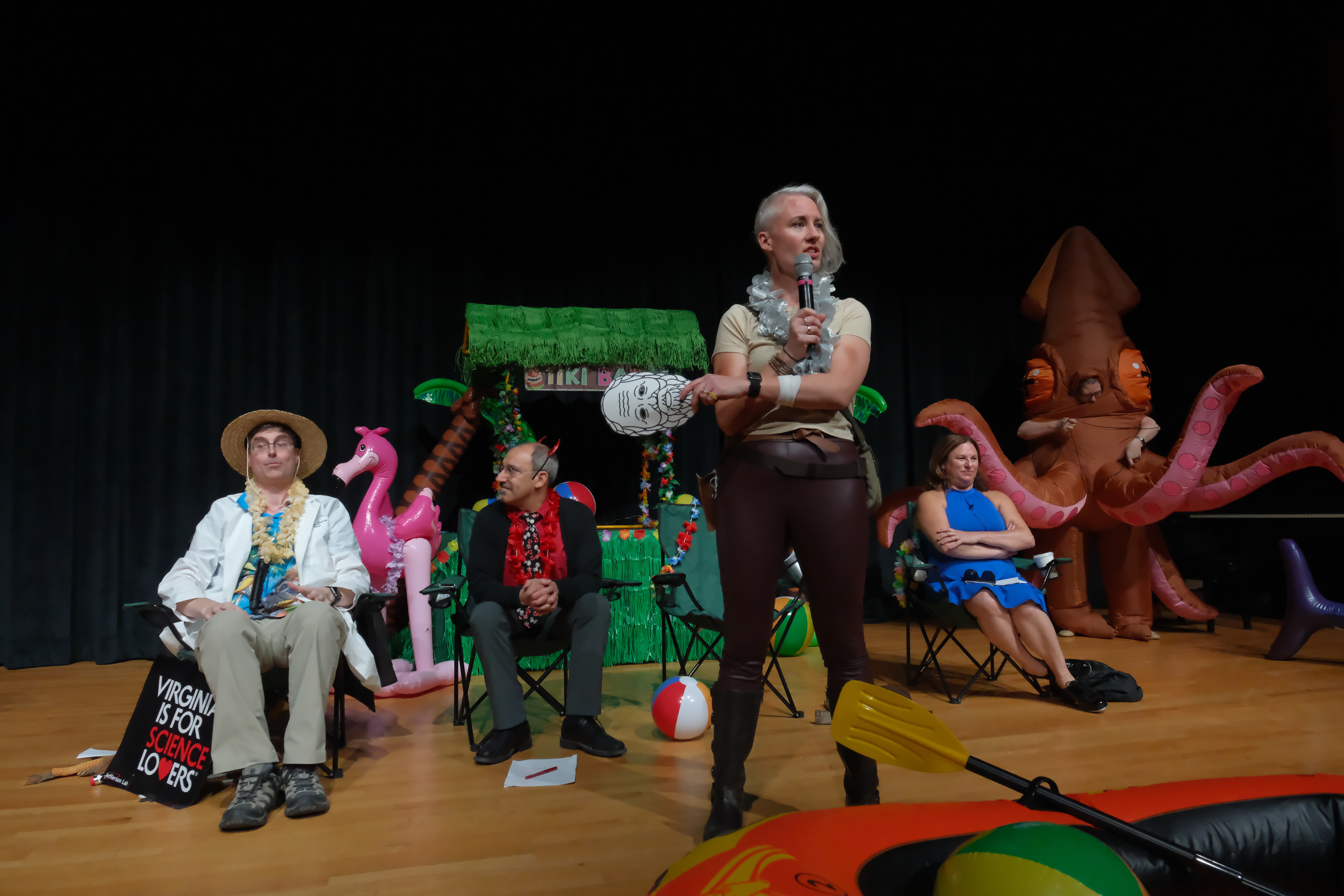
To enhance the stakes and add a twist to the debate, Joshua Gert, Leslie and Naomi Legum Distinguished Professor of Philosophy, acted as the devil’s advocate, arguing that none of the disciplines should be saved.
During the debate, each professor highlighted the strengths of their discipline by explaining what makes it essential to humanity’s survival. Each professor was given seven minutes to share their arguments, before hearing the rebuttals from the other two disciplines. Audience response and applause determine the debate's winner, and audience members were given five minutes to ask questions after every professor had spoken.
Paga began the debate by arguing for the importance of the culture and entertainment that the humanities provide in the world. “We’re not just surviving, we’re thriving,” said Paga. “The thing that brings us together is community.”
Conversely, Erlich argued for the importance of the sciences in their ability to solve complex problems. “If you leave me on this island, who’s going to give you treatments, cures, vaccines?” asked Erlich.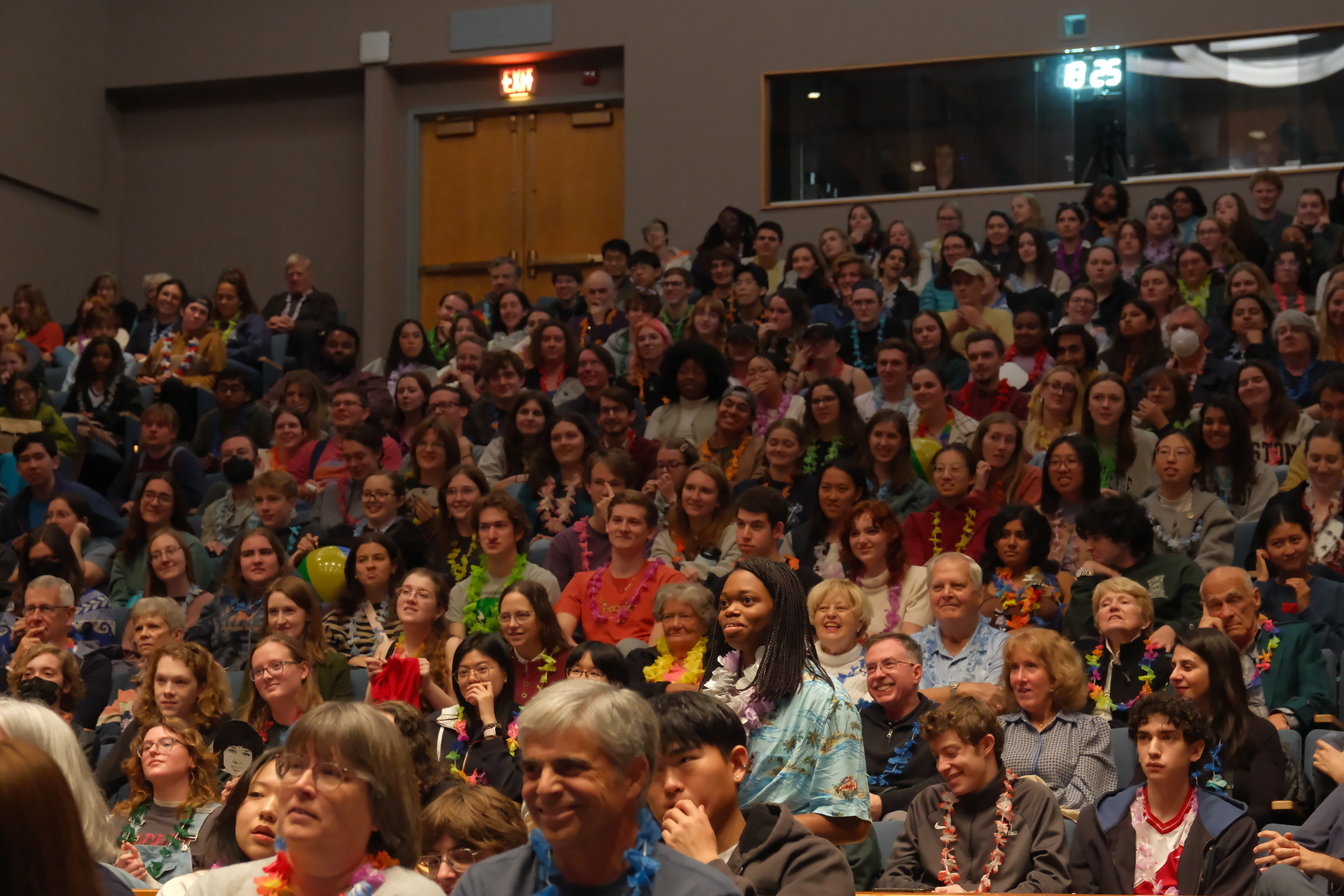
Stevens took a more meta-approach to her position, arguing that the debate would not even be happening without our psychological understanding of “the value and enjoyment of a little competition,” said Stevens.
After Gert’s argument that all academic disciplines need to work together to create an effective society, and thus no single discipline should escape the island alone, Erlich and the Natural and Computational Sciences were announced the winners of this year’s Raft Debate.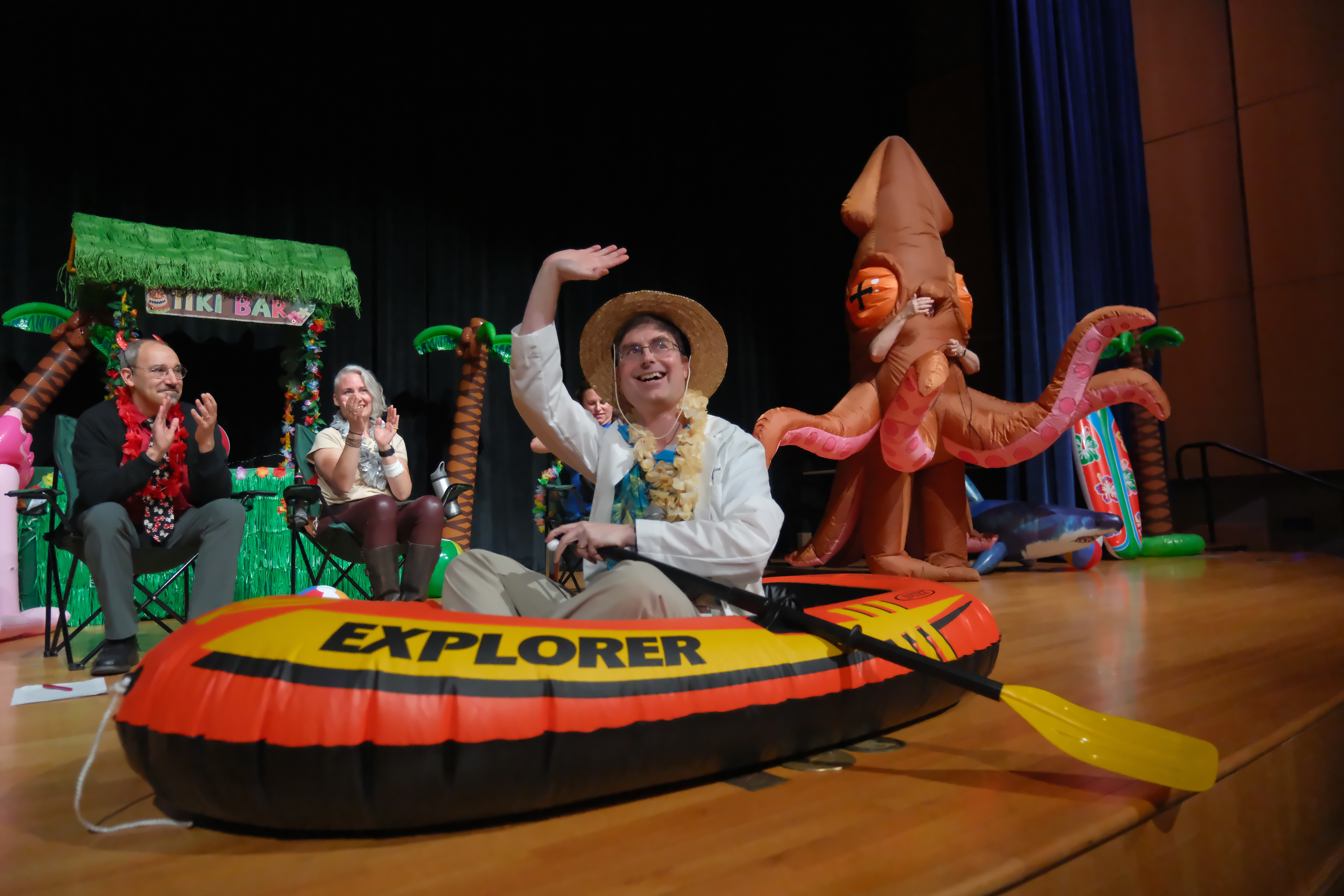 “I was thrilled when I heard about the return of the Raft Debate, especially since I will be graduating this year, and I loved seeing the silly competitiveness of the professors involved,” Emily Alberti ’25 said. “Seeing the academic disciplines on the same stage and having fun made attending well worthwhile, even if I am a little sad that Humanities were not crowned the victor.”
“I was thrilled when I heard about the return of the Raft Debate, especially since I will be graduating this year, and I loved seeing the silly competitiveness of the professors involved,” Emily Alberti ’25 said. “Seeing the academic disciplines on the same stage and having fun made attending well worthwhile, even if I am a little sad that Humanities were not crowned the victor.”
Ukamaka Ozed-Williams ‘25 was the student coordinator for the debate, partnering with the A&S Dean’s office team. She assisted in raising awareness around campus to create excitement among the student body, including filming Q&A videos with the faculty debaters and coordinating social media and print promotion. A reflection of her efforts, the debate attendees filled Commonwealth Auditorium and the overflow viewing space, with many also watching it on a live stream.
“It was a pleasure to work with the Dean of Arts & Sciences office, and I met a lot of wonderful people. The event was so successful thanks to the Dean’s office team, the professors, my committee of friends, and a whole host of others who worked hard and spread their joy to others,” said Ozed-Williams. “I'm graduating this year, but I have no doubt Raft Debate will be a smashing hit next year too.”
